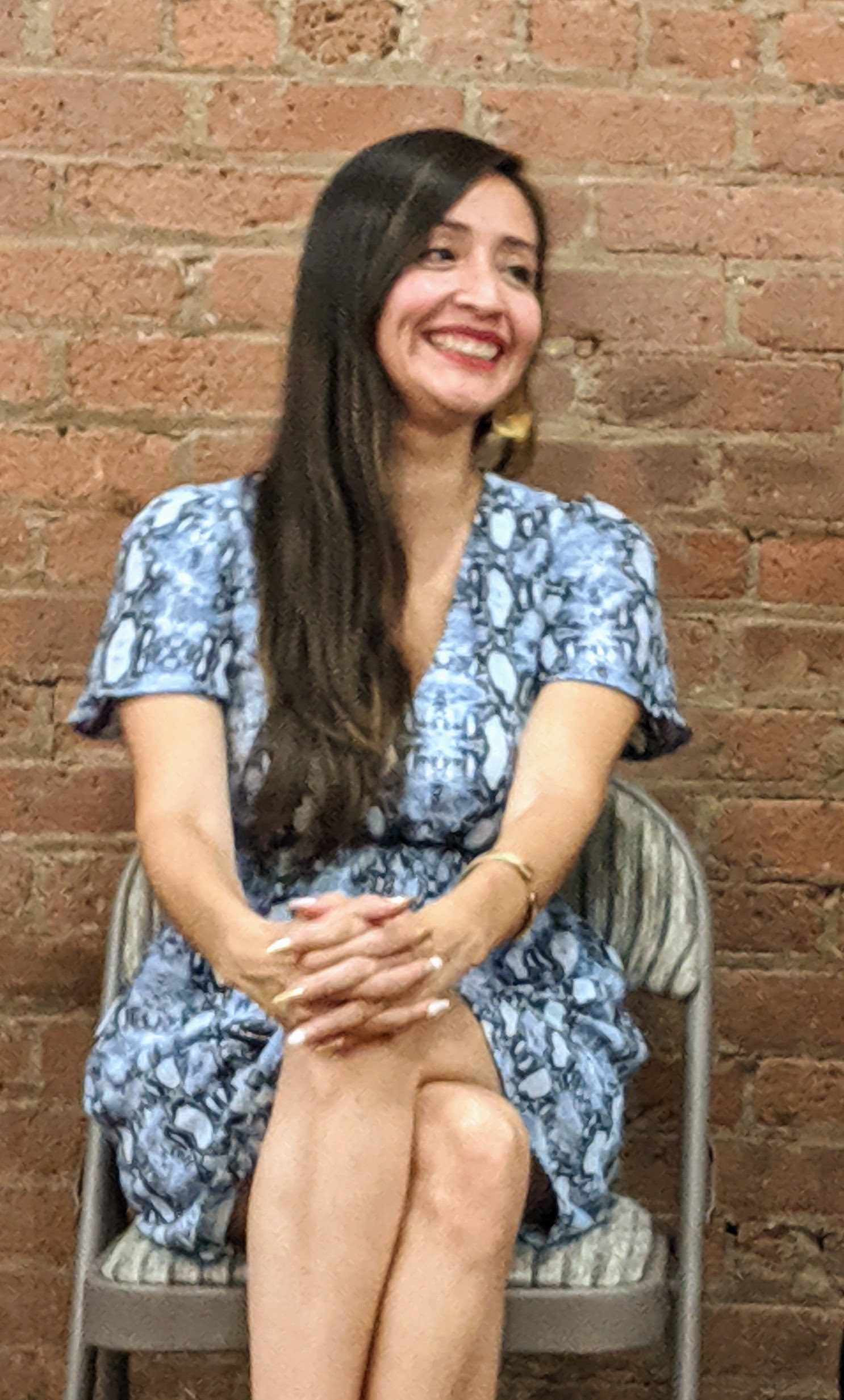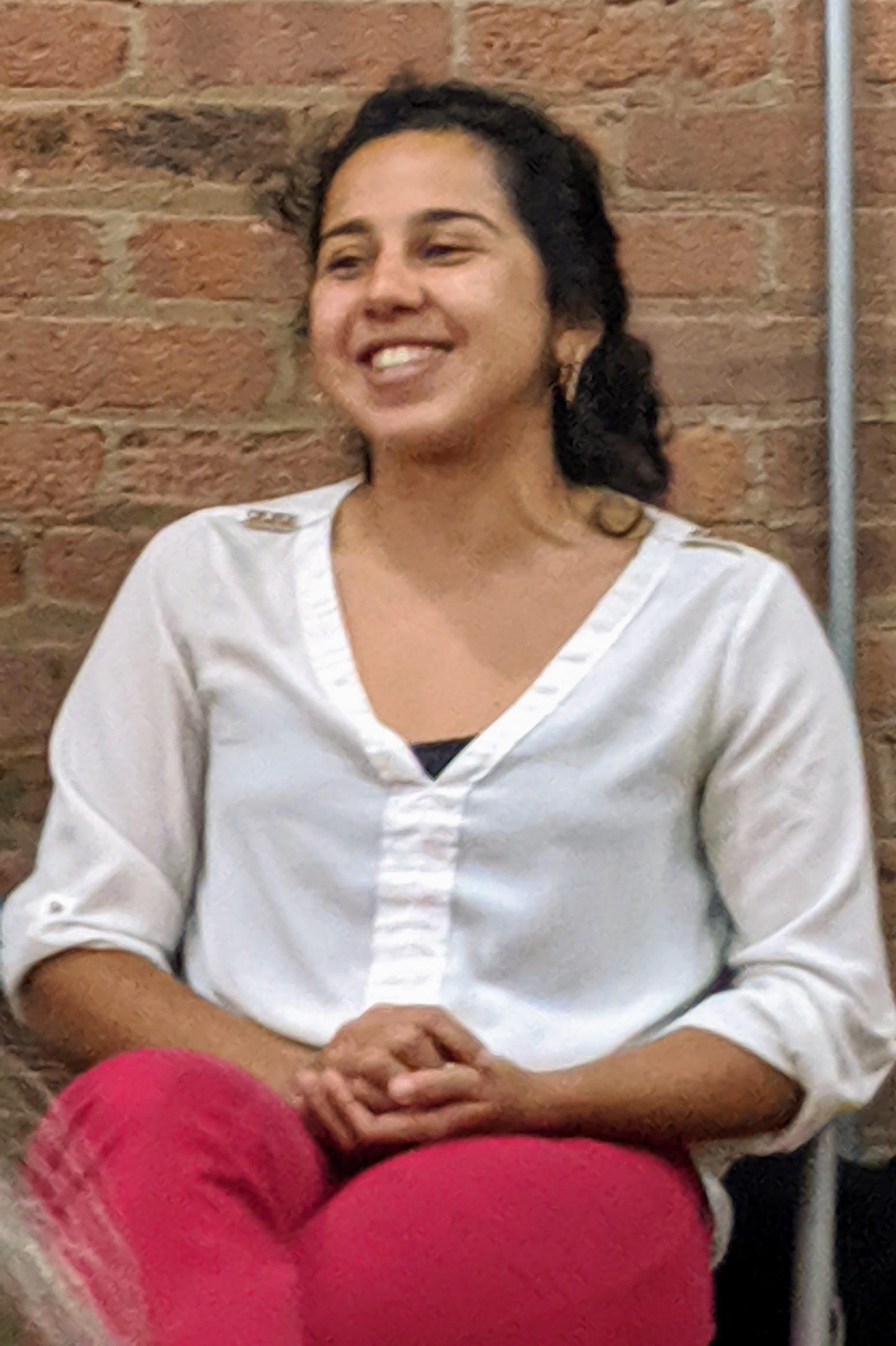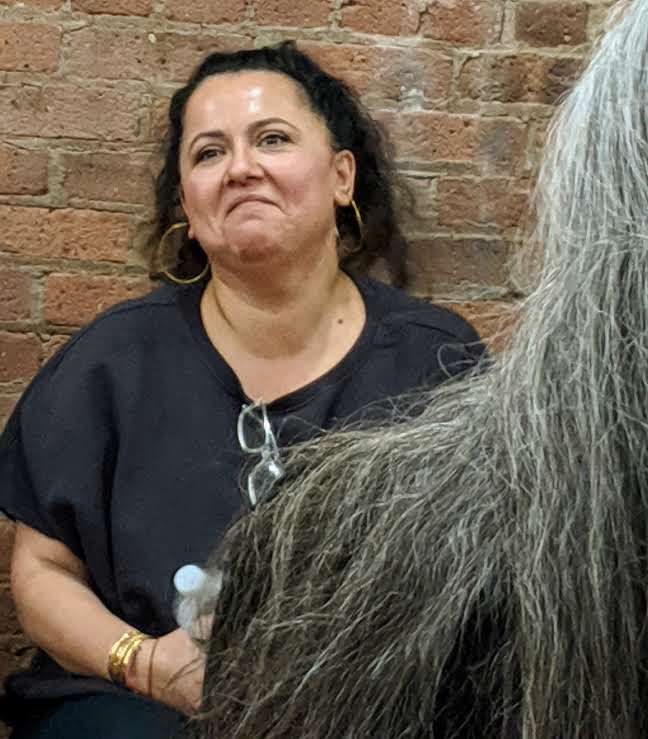On October 17 of 2019, three debut fiction authors—Rabeah Ghaffari, Stephanie Jimenez, and Melissa Rivero—engaged in a warm and lively discussion about turning immigrant women’s stories into first novels. The panel was moderated by Rivero’s agent, Julia Kardon of HG Literary.

Meet the Authors
Rivero, born in Lima, Peru, and raised in Brooklyn, is a graduate of Brooklyn Law School, legal counsel, and a recent Emerging Writers Fellow at the Center for Fiction. The Affairs of the Falcóns, her novel about a young undocumented Peruvian woman fighting to keep her family afloat in New York City, was inspired by the questions she gets about immigrants with an undocumented status.
Also now a New Yorker, Ghaffari set her “geopolitical fairy tale,” To Keep the Sun Alive, in Iran—which she left when she was eight, returning only in 2002. It depicts a family and their fruit orchard caught up in the Iranian revolution of 1979. She comes to novel writing from filmmaking and originally wrote her book as a screenplay. Her challenge was to fill in around the dialogue, to “be the actor and the cinematographer.”
Jimenez was born in the USA and lives in Queens, but returned to family roots for They Could Have Named Her Anything. A Fulbright recipient and published author of short fiction and nonfiction, she started her book while visiting Colombia, where her mother was from, but found herself homesick for New York.
What They Have in Common
Jimenez’s feeling of being torn between two cultures was shared by her sister panelists. As Rivero put it: “An immigrant has a set of eyes looking forward and a set looking back. I live in that hyphen.” These feelings are reflected in the character-driven novels. Rivero said she was caught up in having her character succeed, in “helping” her “see her own resilience.” Ghaffari was concerned with her characters’ sense of place and how that forms their identity. Jimenez explained how just walking down a street somewhere you love, you feel connection in the air.
Also shared was a compulsion to get their stories out there. And a feeling that an amount of ignorance about the process prevented them from giving up.
So, was first-time publishing easy?

It took Rivero seven years to find an agent, Ghaffari six and Jimenez five. Rivero was helped by gaining the fellowship at TCFF. Jimenez got a publishing job in publicity while she was writing and there she learned how to put a book together.
What did the others learn in the publishing process? It was the publicity aspect that surprised Rivero most. “There’s the ramp-up and then a drop-off. It messes with your mind and confidence and all the time you have to spend promoting on social media.”
Ghaffari was struck by having to look at the proofs and also having to hashtag everything on social media. Not so much to sell the book, but because “there might actually be someone out there who would want to read this book […] It felt once book is out in the world it’s not yours anymore.”
Rivero was appreciative that her agent (Kardon) helped shape the book before sending it out. “Moving a chapter wasn’t easy but it was the best advice.” The editor at her publishing house suggested she reduce the number of characters, which also strengthened the book.
Jimenez hired a freelance editor who gave her developmental edits, suggesting when to summarize and when to put in characters. “Ask a lot of questions,” she advised.
Other advice they would share?

Ghaffari: “Always be looking at other forms of art. They’ll bring something forward. Then, pick your battles. Don’t try to control every little thing.”
Rivero: “Keep your day job. Take time each day to write.”
Jimenez: “Establish a writing community. I got critiques from many readers before I sent it to an agent.”
Bad advice to ignore?

Jimenez: “Don’t publish a book unless it’s going to be a blockbuster. Some established agents are like that. But trends are always changing.”
Rivero: “Put it away until your children are grown. It’s not therapy if you have to write it.”
Ghaffari: “Don’t waste time writing a novel. Nobody reads anymore—yeah, they do, though they are mostly women!”
Want to attend the next WNBA-NYC event? Attend of upcoming New Year’s Party this Wednesday night!




